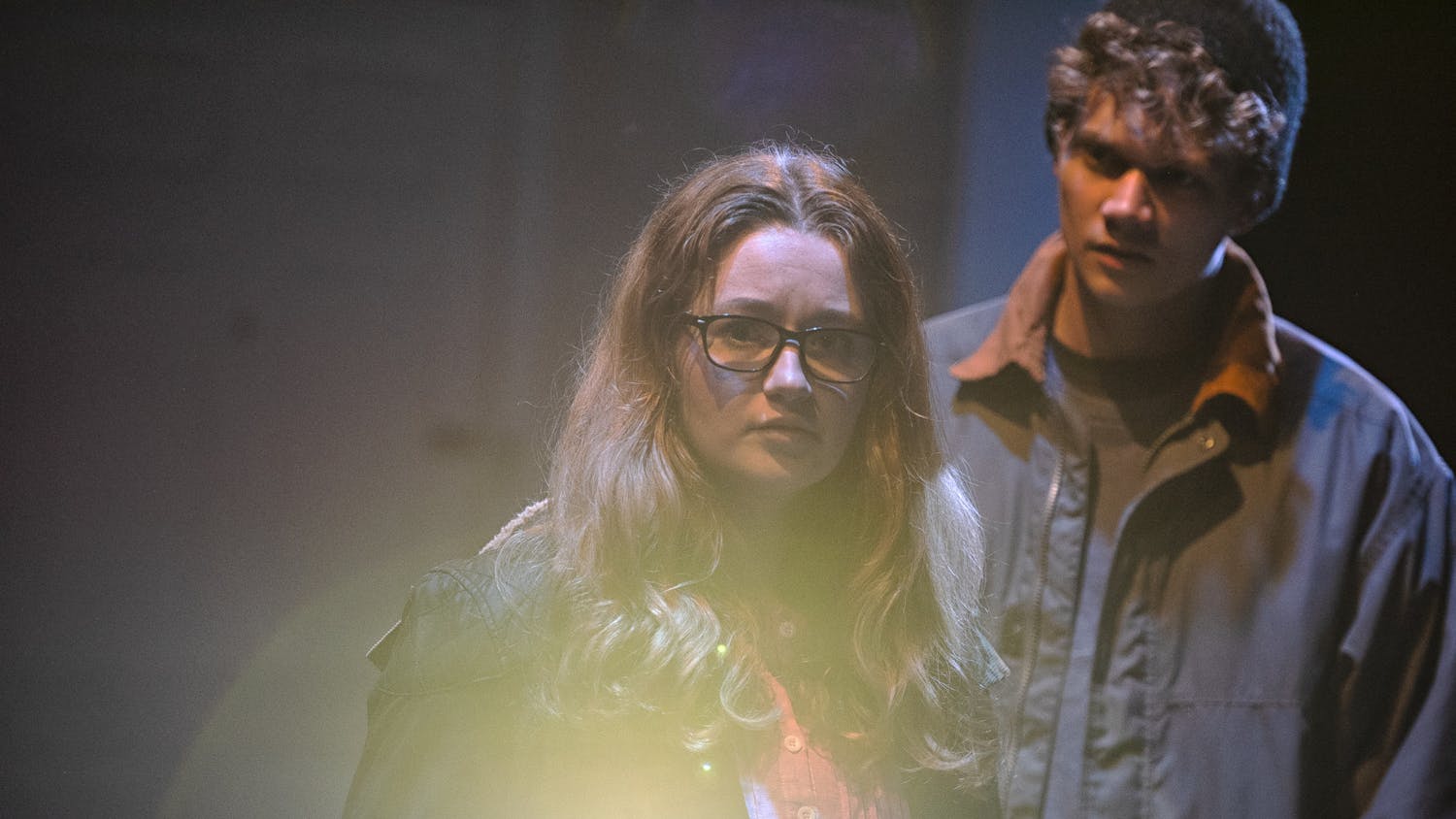Following deftly in the footsteps of Liz Taylor and Paul Newman in “Cat on a Hot Tin Roof,” Martha Newman ’10 and Matthew Nakitare ’10.5 explode with sexual tension in “After Miss Julie.”
But the suggestive air hanging heavily above all the scenes is more on account of Newman than Nakitare, her acting giving rise to a character so volatile you feel a little unsafe just watching it develop.
“After Miss Julie,” which showed in the Hepburn Zoo over the weekend of April 15-17, concerns itself with class-consciousness to the point where it assumes as much of a palpable presence as the other personalities onstage. Newman portrays the title character, a rich socialite whose perception is entirely formed by the lack of want she’s experienced all her life as well as the liberal politics she claims to espouse.
Patrick Marber wrote the play as a reinterpretation of August Strindberg’s 1888 naturalist tragedy, “Miss Julie,” and though the original shares a time period with the famous socialist thinker, even the program notes dissuade you from keeping Marx in your mind as you watch the show. Lest one believe that director Willy McKay ’11 is trying to make any modern condemnations, he writes in the director’s notes, “The class theme is not designed to point beyond the play. Rather it turns inward, accruing importance in the way it affects the characters.”
Those characters — just three of them — are what give the production its force. Alongside Newman, Nakitare plays the dignified chauffer John, employed by Miss Julie’s family, whose concern for his employer’s every whim is only eclipsed by his desire for that employer’s daughter. Molly O’Keefe ’12.5 puts on a spectacular performance as Christine, the cook and John’s on-and-off fiancé.
On one night in 1945 Britain, Miss Julie’s family celebrates the Labour Party’s landslide victory with dancing and drinking. Miss Julie, instead of enjoying herself at the party, sneaks off to the kitchen to spend her time flirting with and teasing John. What she finds, however, is more than just reciprocation.
She opens a Pandora’s box on class consciousness, realizing — over just one night and a morning — that having money is just as much a hindrance as not having it.
As McKay points out in his note, however, the class theme does not encapsulate the play. Instead, it is the stage from which the characters investigate themselves and their beliefs. It renders the play a tragedy, a doomed love story.
Such doom is instantly compelling, and it does not hurt that O’Keefe and Newman delve into their complicated personas with convincing power. While Nakitare is just as tragic a figure, and thus equally deserving of our attention, his female co-stars’ personalities and skills overwhelm him.
O’Keefe, though lesser than Newman in status and grandeur within the play, gives such a performance that she is at least Newman’s equal in acting.
The best part of “After Miss Julie,” however, is the one piece you’re not allowed to talk about in a review — the end. As the lights dim, voices immediately start speculating as to the meaning of the final scene.
With such clear-cut distinctions — between privilege and poverty, moral and amoral, assertive and humble — throughout the play, the seemingly frustrating ambiguous conclusion is actually refreshing.
The “after” of the title may just be a reworking of Strindberg’s original title to reflect the new version, but it ends up having a symbolic significance in the cliffhanger of the ending. Audiences are left wondering about what comes after the final moments of the play. The wondering might irritate some, but if they submit to the idea that the events of the play are less important than the relationships, then the ending seems fitting.
Human relationships, after all, are filled with curiosity and the need for interpretation.
In terms of the class theme threading through the play, however, it’s a little less transparent. Even if the three characters subvert those irksome castes for one night, it’s unlikely society will transform at large.
McKay conveys in his director’s note that he does not expect for it to alter either. Miss Julie, John and Christine, more importantly, will likely be changed forever, and it is them the show wants us to focus on anyway.
‘After Miss Julie’ misses nothing
Comments



